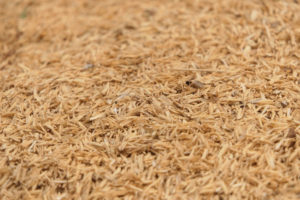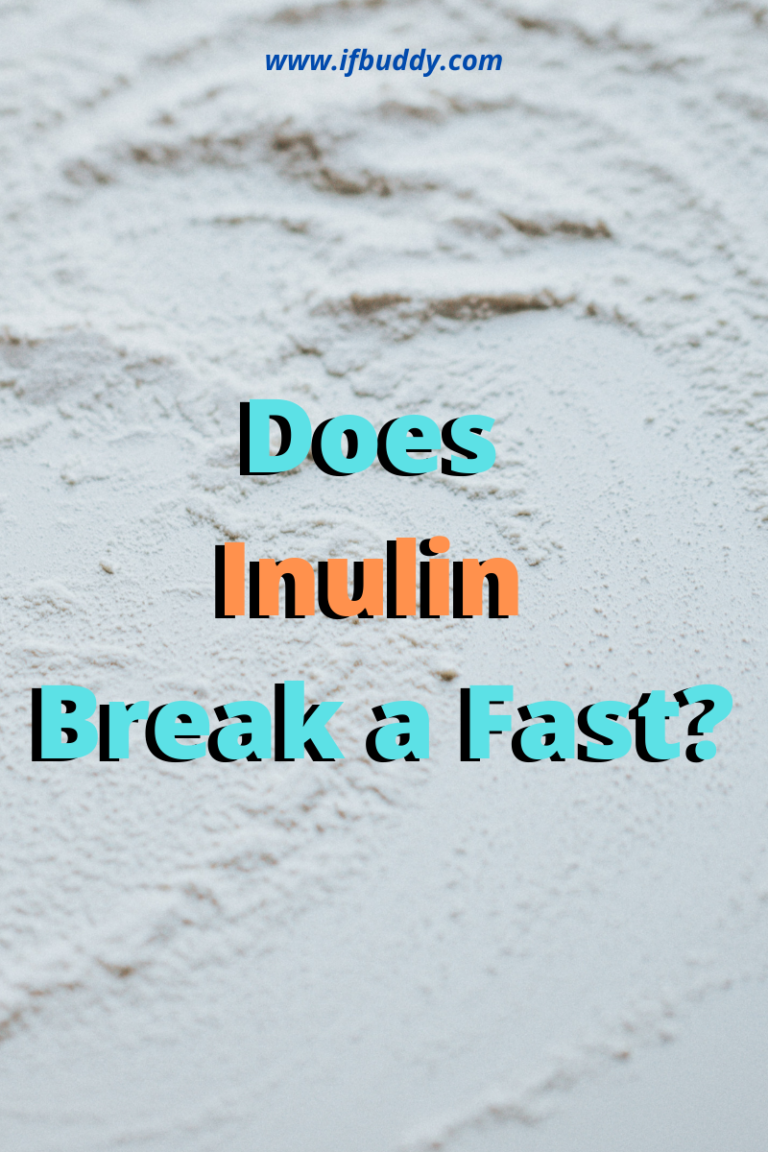Fiber is often a controversial topic in the world of intermittent fasting. On one hand, most fiber supplements contain more calories and carbs than allowed during a fasting window. On the other hand, most of those supplements aren’t usually metabolized, and they don’t cause an insulin response. Supplements like psyllium husk are considered safe under most fasting methods. But what about other types of fiber, like inulin? Does inulin break a fast?
Inulin is a starch (sugar) and like all starches, there’s a risk that it will break a fast. However, it is mostly metabolized in the gut and studies show it can lead to better insulin sensitivity. In other words, a lot of it depends on why you’re fasting and what type of fast you’re doing.
So let’s dive deeper into this topic and see how inulin affects fasting, what its benefits and side effects are, and whether you should rather choose psyllium husk.
Does inulin break a fast?
Inulin is a starch and has about 5 calories per serving, with around 3 grams of carbohydrate. Under some very strict intermittent fasting methods, those calories, together with the fact that inulin is a form of sugar, will break a fast.
However, inulin is not absorbed in the upper gastrointestinal tract, which means it isn’t metabolized like other starches. That means most people will not have an insulin reaction when consuming inulin. If to you breaking a fast means eating anything that causes an insulin reaction, then inulin should be safe.
There are no definitive studies to show us how and if inulin impacts autophagy. Most fibers do not have a negative effect, but in the absence of clear results, the best we can do is guess. So if you’re fasting for autophagy and want to take no risks, you better don’t have inulin during your fasting window. Instead, you can use it to break your fast. You’ll still get all the benefits of inulin without disrupting autophagy.
Effects of inulin on your fast
Benefits
Whether you’re using inulin during your fast or at the beginning of the eating window, this fiber has many health benefits that you will enjoy.
It keeps you full
This is a common effect in all fibers. Inulin is a type of carbohydrate that can’t be digested in the body. As a result, it moves through the intestines, and while doing so, it slows digestion which helps you feel satiated for a longer period of time.
In other words, it will make your fast a lot easier. If you’re lucky and the type of fast you’re on allows inulin during the fasting window, you’ll experience fewer cravings and hunger. But you’ll benefit from its effect even if you take it at the start of your eating window. How? Because by making you feel fuller, it will decrease the chance that you’ll overeat with your first meal after a long fast.
It stabilizes blood sugar
If blood sugar management is one of your fasting goals, you’ll be happy to know inulin has been proven to benefit people with prediabetes. Studies also showed inulin can improve insulin sensitivity in overweight adults.
This effect isn’t great only for those suffering from prediabetes or diabetes. Stable blood sugar levels mean less unhealthy food cravings, more energy, and even better sleep.
It improves digestive health
Inulin aids digestion by increasing the number of good bacteria in the gut. Good bacteria are essential to help prevent infection, support the immune system, and of course, aid digestion.
Some studies show the benefits for colon health go further than that because fibers like inulin may help prevent colon cancer.
Side effects
Inulin rarely causes any side effects.
When you first start using it, you might experience digestive issues, such as flatulence, bloating, diarrhea, or constipation. To prevent these issues, make sure you drink plenty of water and start with a low dose. Once you’ve established inulin is well-tolerated within your body, you may try to increase the dose if needed.
Inulin may also be problematic for those suffering from irritable bowel syndrome (IBS). People with IBS, especially the type accompanied by diarrhea, need to follow a low FODMAP diet. If this applies to you, you need to avoid inulin.
Pregnant women are also advised to consult their doctor before using this type of fiber.
Inulin vs psyllium husk: Which is better for fasting?
Most people consider psyllium husk a safer option, simply because more studies show it doesn’t cause an insulin response.
Otherwise, both have more or less the same benefits: they help you feel fuller, decrease cravings, help manage blood sugar, and improve digestive health. In other words, choosing the best one is more a question of personal preference.
People who suffer from IBS and follow a low FODMAP diet will most likely have issues with inulin, but not necessarily with psyllium husk. Quite the contrary, psyllium husk is usually recommended in issues such as IBD and IBD due to its benefits for these conditions.
The bottom line
Does inulin break a fast? The answer depends on the type of fast you’re on and why you’re fasting. If you’re looking at fasting simply from a calorie or carbohydrates perspective, then yes, inulin will break a fast. However, this fiber is not metabolized in the stomach and it most likely won’t cause an insulin response. This is why many feel it does not break a fast.
As for those whose goal is autophagy, studies are sadly insufficient. Most would say inulin won’t break autophagy, but in the absence of formal research results, there is no guarantee.
In other words, if you want to be 100% certain, have your inulin supplement first thing during your eating window. You will still get all its benefits, including reduced cravings, balanced blood sugar, and improved digestion.
Remember to always start with the lower dose to avoid health issues and gradually increase from there if you find your body tolerates inulin well. Allergies and side effects are rare, but if you’re on a low FODMAP diet, you may want to avoid inulin.

